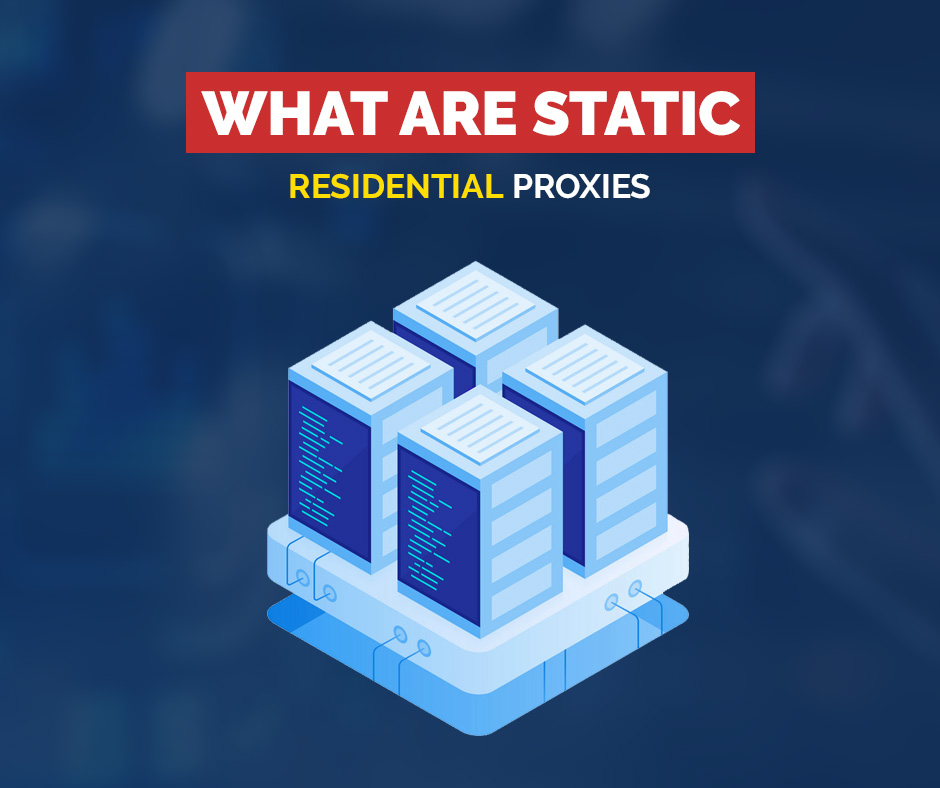What is the meaning of Static Residential Proxies?
A static residential proxy is a mediator that uses an I.P. address provided by an Internet Service Provider, not a data centre. Every residential proxy address has a fixed location. Although billions of digital devices connect to the Internet at any time, their I.P. addresses can spot the area of any device. So, whenever you go online, you provide information about your browser preferences, cookies, and log in with your real I.P. address.
Worryingly, while the Internet is a global community, many service providers will be geo-locked so that you can only access it from certain countries. Besides, if you’re trying to eliminate data for search engine optimization (SEO). Or use bots for social media or scripts, your I.P. address may be blocked, and you may not be able to access the webpage you want.
Although you can find free residential proxy services, it’s best to sign up for a subscription plan with a trusted proxy provider. It’s much more reliable, faster, and offers the highest level of security and anonymity. Free static residential proxy services repeatedly steal data & passwords and even hack their users.
Like any other proxy, resident proxies send your Internet traffic through an arbitration server. This server changes the I.P. address of your connection request. Residential proxies are unusual because they are mobile and desktop devices that are used as intermediaries for your communications.
Fortunately, static residential proxy’s networks are an effective way to address these issues.
Why use a static residential proxy network:
Well, you are right to ask. Yes, there are no perfect I.P. address solutions, and you need to consider your needs and goals before choosing the right type. Sometimes, it is better to use a static proxy, while other situations require a dynamic I.P. address solution.
You may want to hide your I.P. address for a variety of reasons. Or you may need to scrape data from different websites, or run multiple accounts from the same laptop or P.C., upload or download torrents via P2P connections, or stream geo-blocked content.
In any case, a static residential proxy network is great for hiding your true online identity. It assigns you a real, resident I.P. and protects your I.P. from the server for online anonymity.
However, there is a downside: search engines will only allow you to make a certain number of requests from a single I.P. in one minute. Therefore, this type of single server configuration can significantly limit your browsing options and even restrict it if it exceeds the given rate.
However, static I.P. addresses have two main advantages. First of all, it’s stable. Static I.P. addresses are more durable than dynamic I.P.s. A static I.P. address does not change, thus avoiding a permanent interruption in user communication. This feature makes it perfect for businesses, often wanting to use the same static I.P. address to facilitate communication and work within a closed network.
Second, it’s easy. Because the dedicated proxy is configured only once, static I.P. addresses are simple and easy. Static I.P. addresses are easy to configure and manage with Domain Name System (DNS) servers and are easy to find through DNS if you’re hosting any server.
And the benefits are even more significant when you use a combination of static and residential I.P. – the main advantage of residential I.P. proxies is its legal status. Because residents use legitimate I.P. addresses, their websites are less likely to be blocked. Resident I.P.s will look for the ISPs that provide them, so they look like a regular person surfing the net.
How Static Residential Proxies work:
A residential proxy stands between you and the Internet. It acts as a mediator. When you’re using a proxy, your I.P. Address will be different and will mask your address, so you can remain anonymous or collect data for scrap targets by applying more proxies and keeping them on the go will.
Residential proxies have proven to be an effective way to see how ads are displayed in other countries and also allow businesses to see if the ads shown are genuine, as many hackers do. –gives fake ads and claims revenue.
Benefits:
- Avoid geo-restrictions:
Most proxy services offer users a pool of I.P. addresses from different geographic locations so that they can select and select their location and freely access the content they want.
- Cope freely:
Because they mask the user’s I.P. address, proxy connections enable block-free web scraping and shoe copying.
- Staying anonymous:
A proxy server will mask the user’s I.P. address. And all related information such as location, browser information and much more.
- Secures your data:
A proxy connection prevents malicious users and websites from accessing user data. Online hackers and cybercriminals will not be able to gather information or spread malware that could damage devices.
It also has some disadvantages:
The big issue here is the price. Prices run into the hundreds of dollars a month, and the average consumer is reluctant to pay. Another thing is worthwhile. Static resident proxies are hard to deal- seriously. It is especially troublesome if you need to do dozens of proxy web scraping or shoe copying.
Nonetheless, not often, the best thing is to invest in static residential proxies. Other solutions, such as datacenter proxies, are great but have one major flaw.
Conclusion:
Resident proxies have masked your I.P. address, don’t skip online fingerprints. And are less likely to trigger a website security alarm. It is especially crucial if you are thinking of scraping extensive data or want to copy these new designer shoes.
And browse the net with less non-interference, then a stable resident proxy is best for you. Static residential proxies are most importantly. The powerful combination of a secure connection with a legal resident IP that boosts your competition. Whether it’s other businesses or peer-to-peer skipper heads.


